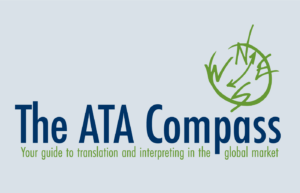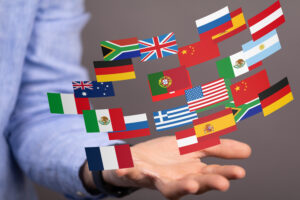How Much Does a Translation Cost?

If you’re looking for translation services, you’re likely wondering how much translations cost. Whether you need a birth certificate or diploma translation, a translation of documents about your family history, or a translation for business, it’s only logical to ask: what price will I have to pay?
There’s no cut-and-dried answer to that question, but here are six factors that affect the cost of translation. This quick list will help you get a better sense of how translation fees work. It also includes some useful tips about how to hire a translator and what to ask before you get started.
Translation cost factor 1: Document format
Editable formats, such as MS Word or Excel files, will be easier for your translator to handle. Scanned files will be more time-consuming to translate, and this may increase the cost of translation. If you have a handwritten document, it may be hard to read. When requesting a translation quote, it’s helpful to provide the document to be translated. This way, your translator can get a better sense of how much work is involved in order to quote an accurate price.
Translation cost factor 2: Document length
Translation is often charged on a per-word basis (or per-character basis for languages that use characters), so a longer document will result in a higher price.
However, translating a short document still requires expertise. Short texts can be complex, and they require the same amount of time for client communication and billing as a longer project would. Most professional translators have a minimum service charge, even for a document that is just one or two pages.
Instead of per-word pricing, some translators offer a per-page fee or a flat fee, particularly for certificate or diploma translation services. In some cases, translators may charge hourly rates, especially for creative translations in the marketing world, or if the job includes more than one step (for instance, transcribing an audio recording in the source language and then translating it into the target language). Pro tip: If your translator bills by the hour, consider asking for an estimate of how long the job will take, so you can get a sense of how much your translation will cost in the end.
Translation cost factor 3: Official certification
For official document translation, such as diplomas, transcripts, birth certificates, and marriage certificates, you may need a certified translation. The American Translators Association provides a free searchable Language Services Directory, and you can select certification as one of your search criteria. If you need your certified translation to be notarized as well, that represents an additional fee.
A certified translator may charge somewhat higher rates than other translators. ATA certification means that the translator has passed a competitive exam in their language pair, and it includes requirements for continuing education.
Translation cost factor 4: Turnaround time
Translators usually charge a rush fee for quick turnaround or weekend work. A tight translation deadline will result in an extra charge. Keep in mind that quality work takes time, and, if possible, take the translation process into account when setting deadlines for your project.
Translation cost factor 5: Specialized vocabulary
Professional translators usually specialize in specific subject areas. When hiring a translator, make sure they are familiar with the subject matter of your project. You may have to pay premium rates for some fields that require very specialized knowledge. So if you need to translate a nuclear submarine instruction manual or a handwritten property deed from the seventeenth century, the price will likely be higher than your run-of-the-mill translation job.
Translation cost factor 6: Language pair
The ATA Language Services Directory contains approximately 100 source languages. The five most commonly translated languages from this list are Spanish, German, French, Japanese, and Brazilian Portuguese. Others, such as Yoruba, Zulu, Tamil, Estonian, or Welsh, are not translated as frequently in the US. Professionals working with less common languages may charge higher translation rates.
Ready to get started?
Now that you have a sense of all the factors that can affect how much translation services cost, you’re ready to search for a translator.
One final tip: the more information you can provide about your project up front (length, purpose, subject area, copy of document), the easier it will be for your translator to give you an accurate translation price quote. Don’t hesitate to ask any questions you may have about the process—your translator will be happy to help!
By Kate Deimling
About the Author
Kate Deimling is an ATA-certified French-to-English translator and an English-language editor. Her specialties include translating for the art and museum worlds and for luxury brands. She is also an active volunteer for the American Translators Association, which represents nearly 9,000 translators and interpreters in more than 100 countries. To hire a translation or interpreting professional, please visit www.atanet.org/directory/.
4 Comments
Leave a Comment Cancel Reply
Language Services Directory
Subscribe to The ATA Compass
Connect with The ATA Compass
Recent Posts
The ATA Compass
Want to reach more customers, grow your business, and improve your bottom line? The ATA Compass publishes articles and provides resources to show you how language professionals can help you…
Read MoreLanguage Services Directory
Start Your Search ATA’s Language Services Directory includes a list of all ATA members of individuals, as well as companies. Need help finding the right professional? Professional translators and interpreters…
Read MoreWhat is a Certified Translation?
What are the basics of a certified translation? In the United States, anyone can certify a translation. A translator does not need to be certified in order to provide a…
Read MoreTranslator vs. Interpreter
Watch a Day in the Life of Translators and Interpreters See how translators and interpreters work in this short animated video. Translators do the writing Translators work with the written…
Read MoreMachine Translation
What is machine translation? Machine translation (MT) is the use of automated software that translates text without human involvement. Adaptive MT is a technology that learns and adjusts in real-time…
Read MoreExploring Translation and Interpreting Services
Why Are Language Services Essential in an Internationalized World? In a world where communication knows no bounds, effective language services are paramount. ATA helps you find professional translators and interpreters…
Read More








Thank you for this, but one point: I really wish the ATA would avoiding spreading the notion of per-word pricing as the default. It isn’t, except in the low-end bulk market. Most importantly, it shouldn’t be: It commoditizes our work and encourages discussions about pennies, de-professionalizing what should be billed as a high-end intellectual service.
perhaps someone could actually answer the question, by leaving, e.g., a price range
Hard to contact someone for Translate !
Hello! To find a translator, please feel free to use ATA’s Online Directory at https://www.atanet.org/directory/